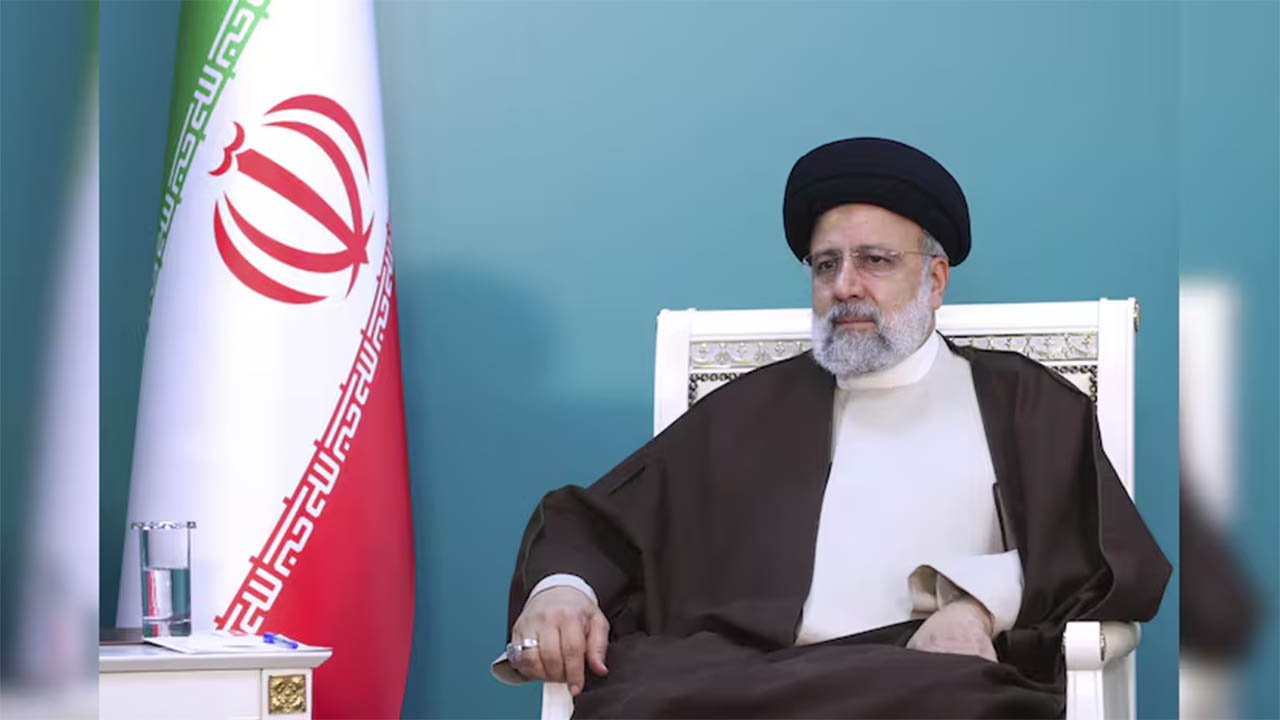
Iranian President Ebrahim Raisi, along with his Foreign Minister Hossein Amir-Abdollahian and other officials, met a tragic end when their helicopter crashed in dense fog while traversing mountainous terrain. The incident unfolded during their return journey from inaugurating the Qiz Qalasi Dam on the Iranian-Azerbaijani border, casting a pall of sorrow over the nation.
State Television Announcement: The news of President Raisi’s demise was solemnly conveyed by Iranian state television, which described him as a dedicated servant of the Iranian nation who had attained the highest level of martyrdom while serving his people.
Loss of Contact and Urgent Search Operations: The helicopter carrying President Raisi lost contact roughly 30 minutes into the flight, prompting immediate concerns and triggering a massive search and rescue operation. Despite the challenging weather conditions and rugged terrain, over 60 rescue teams, including military and police units, were deployed to scour the area for any signs of survivors.
Initial Reports and Hopeful Signals: Initially labelled as an “accident” by Iran’s state media, Deputy President for Executive Affairs Mohsen Mansouri indicated that some members of the president’s entourage had managed to establish contact with rescue teams, raising hopes of potential survivors. The Ministry of Communications narrowed down the potential crash site, aiding in the focused search efforts.
Communication from the Crash Site: Deputy Foreign Minister for Economic Diplomacy Mehdi Safari’s revelation that the Tabriz Friday prayer leader had spoken to President Raisi via phone from the downed helicopter offered a glimmer of hope amidst the tragedy, hinting at moments of communication amid the chaos.
Assurance from Supreme Leader: Iran’s Supreme Leader Ayatollah Ali Khamenei, in a televised address, urged the nation to remain calm and assured continuity in governance. Expressing hope for the safe return of President Raisi and his companions, Khamenei’s words sought to provide solace to a grieving populace.
Global Outpouring of Support: The international community, including neighboring countries and organizations like the European Union, extended solidarity and offered assistance in the search efforts. Prime Minister Narendra Modi of India, acknowledging President Raisi’s contributions to bilateral relations, expressed heartfelt condolences and reaffirmed India’s support for Iran during this difficult time.
Gratitude and Vigilance: Iranian Foreign Ministry spokesman Nasser Kanani conveyed gratitude for the outpouring of international solidarity, while the US administration under President Joe Biden closely monitored developments, recognizing the significance of the event in the regional context.
Context of Regional Tensions: The tragic incident occurred against a backdrop of heightened regional tensions, including ongoing conflicts such as the Gaza conflict and Iran’s strained relations with Israel. President Raisi’s steadfast support for Palestine, reiterated during his recent dam inauguration speech, underscored his commitment to regional solidarity.
Raisi’s Legacy and Stance: Ebrahim Raisi, a formidable figure within Iran’s theocracy, had a legacy marked by unwavering resolve and staunch adherence to principles. Rising from a background in judiciary, Raisi’s tenure as president was characterized by firmness in dealing with domestic dissent and assertiveness on the international stage, particularly in nuclear negotiations.
This tragic event not only signifies the loss of a prominent leader but also serves as a poignant reminder of the fragility of life and the challenges inherent in governing amidst regional complexities and geopolitical tensions. As Iran mourns the loss of President Raisi, the international community stands in solidarity, offering support and solidarity during this trying period.
(With inputs from agencies)







